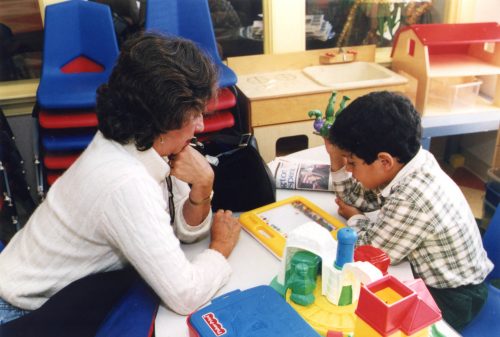And The Reasons Don’t Involve Their Difficult Students At All
A lot of special education educators are leaving their classrooms and changing their professions. And while teaching differently-abled kids tend to be more challenging than doing the same with typical kids, they’re not set down their pens because of it.

If not their students then, why are they leaving?
Insert Read More Tag Here
One can’t help but feel sorry for educators with special education specializations. After all, dealing with atypically-abled children every day isn’t a no-brainer. In fact, the numbers of special education teachers have declined by 17% from 2006 to 2016 (the latest stat count). We might think, “Oh, that’s understandable as special needs kids are hard to deal with,” but these educators aren’t quitting their jobs because of this specific difficulty.
They’re giving entirely different reasons, causes that are solvable if schools and districts pay attention to them.
The Kids Are A Given
A former SPED (Special Education) teacher and now a students’ dean in one of the middle schools in Indianapolis said that he knew that the intricacies his previous work entailed like paperwork and parents continually calling about the whereabouts of their children were just part of the job.
“I know what I was getting into when I agreed to teach a differently-abled class, and I assume every special education teacher does, too,” he stated. “In fact, it’s the main reason why I stayed in this profession, the kids.”
So, what made him almost quit his job?
“It was frustrating, rarely feeling like your co-teachers (the ones teaching normal students) respect you,” he answered. “And it wasn’t borne out of arrogance or anything. It was because they genuinely didn’t know what we do in class; they didn’t understand what our job was like.”
And The Many Other Reasons
For another SPED teacher, who took the alternative-certification approach to kickstart her educational career, recalled how her first placement was with a K-3 class of mix special needs children.
“And nobody oriented me on what to expect. The school administration didn’t give me any curriculum books to follow,” she said. “When I asked, the school program specialist simply answered that no teacher of exceptional student education had ever asked for curriculum materials before.”
Another teacher shared how she felt she needed to validate everything her special needs students do.
“It felt like I had to champion them or something, I had to have an explanation for everything they do – why a student needs to be accompanied when going to the restroom and so on,” she said.
One most vital reason, however, is the truckload of papers they have to do in compliance with local, state and federal requirements per the Individuals with Disabilities Education Act.
With the steady decline of special education teachers, teacher-to-student ration climbed up from a teacher to 14 students to one educator for a class of 17.
“They signed up for teaching, but with all the papers they needed to do, they get to devote only about one-third of their time to actual teaching. The rest goes to the many other responsibilities they need to meet like paperwork,” stated a Boston University assistant professor for special education who had written some research papers focused on the plight of special education educators.
“On top of these responsibilities, they have to deal with connecting to the general education teachers and their school’s administration. These are added burdens to already teaching kids with special needs and dealing with parents who regularly call wanting to know how their children are doing,” she added.
Another assistant professor in the same university divulged how varied the roles special education teachers take when teaching their classes, especially with ADHD in the classroom.
“No two teachers’ roles are the same,” he said.
It’s no wonder why many are breaking when put under these tremendously weighted pressures.

Discovering Solutions
Nevertheless, these dilemmas aren’t without resolutions.
Researchers and special education teachers themselves see mentoring, especially those who are just starting in their careers, as a possible way to solve some of the problems.
“Teaching special needs kids can be overwhelming for the first time,” said one associate superintendent of a district that offers a two-year mentoring program for starting SPED teachers. “They (the teachers) need someone to talk to, someone who isn’t there to evaluate them as a principal would. That’s what we’re providing.”
And so far, their program’s doing well.
One school is also encouraging its special education teachers to mingle and get in touch with the general education teachers to open communication lines and foster friendships.
“Special education educators need all the support they can get to not just survive in their jobs but do them effectively, too,” said one school psychologist.
